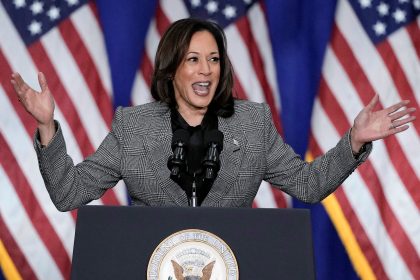FDA Advisory Panel Concludes OTC Decongestant Doesn’t Work

WASHINGTON — A common decongestant ingredient used in many popular over-the-counter medications simply doesn’t work, an advisory panel to the Food and Drug Administration said Tuesday, potentially setting the stage for a sweeping removal of many cold and flu remedies from store shelves.
The debate over the effectiveness of phenylephrine is not new, though the FDA has maintained that it is a safe and effective ingredient in over-the-counter medications since the mid-1970s.
Today phenylephrine is used in more than 250 different over-the-counter products, including Tylenol Cold & Flu Severe, NyQuil Severe Cold & Flu and Sudafed Sinus Congestion.
On Monday and Tuesday, the FDA’s Nonprescription Drugs Advisory Committee heard extended testimony about the efficacy of phenylephrine in the context of what’s now known about the drug.
Experts like Dr. Peter Starke, lead clinical reviewer for the FDA’s Division of Nonprescription Drugs, told the panel it wasn’t that the original review panel was wrong, but that much has changed in the intervening 47 years when it comes to drug development, clinical trial design and clinical review practices.
“Science has also advanced,” Starke said.
The consensus among the witnesses who appeared before the panel as well as among those whose papers the committee reviewed, now suggest phenylephrine is no better than a placebo.
Based on that, the panel suggested, the best thing the agency could do is end the use of the ingredient, enabling consumers to avoid unnecessary costs or delays in care associated with taking a drug that has no benefit.
If, based on the advisory group’s recommendation, the FDA decides the decongestant should be removed from products, the decision could affect the availability of some over-the-counter drugs during the current cold and flu season.
However, in an email to The Well News, a spokesperson for the agency said the process will not occur overnight and there’s no reason for consumers to panic.
“If the FDA determines that oral phenylephrine is no longer considered generally recognized as safe and effective (GRASE) under the conditions of use in OTC Monograph M012: Cold, Cough, Allergy, Bronchodilator, and Antiasthmatic Drug Products for OTC Human Use (OTC Monograph M012), the FDA would issue a proposed order to amend OTC Monograph M012 by removing oral phenylephrine as a GRASE active ingredient from that monograph,” the spokesperson said.
“Stakeholders would have the opportunity to comment on the proposed order, including by providing additional data,” they continued, adding that “during this time period, the marketing status of oral phenylephrine would not change.”
“After considering all of the comments on the proposed order, the FDA would issue a final order on the GRASE status of oral phenylephrine for use as a nasal decongestant under the conditions of use in OTC Monograph M012,” the spokesperson concluded.
Others at the agency said FDA has no further information to provide at this time regarding the timing of any decision the agency may make in the wake of this week’s advisory committee meeting.
The other unanswered question is how the makers of the over-the-counter medications might act.
In 2020, the FDA ordered the heartburn medication Zantac and generic ranitidine be removed from store shelves after an independent lab testing found that certain lots of the medication were contaminated with NDMA, a cancer-causing chemical.
The FDA’s own testing later confirmed these findings. Despite this, a reformulated Zantac, Zantac 360, was available with famotidine replacing ranitidine within months.
Another possibility would be the renewed use of alternative pseudoephedrine, which was placed behind store counters or in locked cabinets because it was often used in illicit meth labs.
A third option is that the matter could wind up in court. After all, medications containing phenylephrine accounted for nearly $1.8 billion in sales last year. It could be that large drug companies see delaying action through litigation as preferable to taking a massive hit on their bottom line.
Among those who opposed the FDA taking any action are the members of the Consumer Healthcare Products Association, a trade association representing the manufacturers and distributors of over-the-counter drugs.
In a written statement, Marcia D. Howard, Ph.D., the group’s vice president of regulatory and scientific affairs, said, “Oral phenylephrine has been relied upon as a beneficial nasal decongestant by American families for decades, and FDA has repeatedly concluded the ingredient is safe and effective.
“This determination, established by multiple double-blind, placebo-controlled trials and supported by two previous FDA advisory panels, has also been validated by a meta-analysis of relevant clinical studies,” she said.
“CHPA urges the panel to recognize PE’s clear benefits and critical role in public health,” Howard said. “We further urge the panel to be mindful of the significantly negative unintended consequences associated with removing PE from the OTC monograph, considering consumers would instead need to find time to seek help from a pharmacist, doctor or clinic for an oral decongestant for a minor ailment they could otherwise self-treat.
“Simply put, the burdens created from decreased choice and availability of these products would be placed directly onto consumers and an already-strained U.S. health care system, which is why CHPA encourages the panel to consider the real-world experience and needs of consumers when making decisions that will have such broad implications,” she concluded.
Dan can be reached at [email protected] and @DanMcCue

























